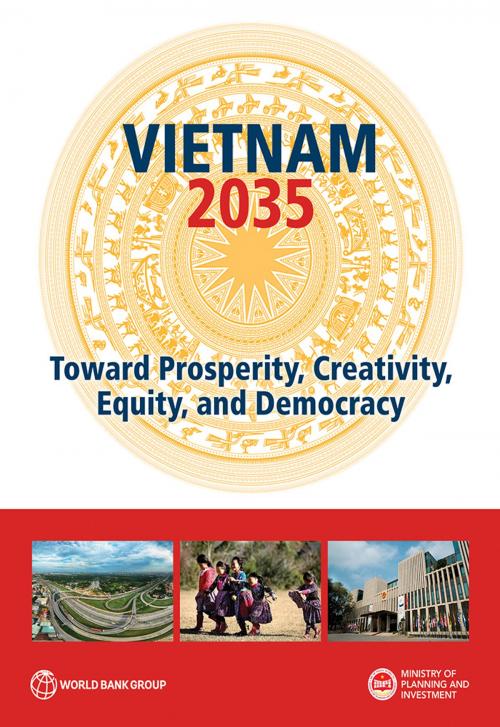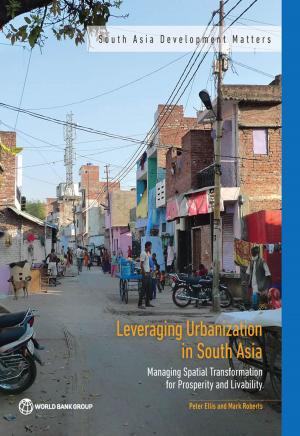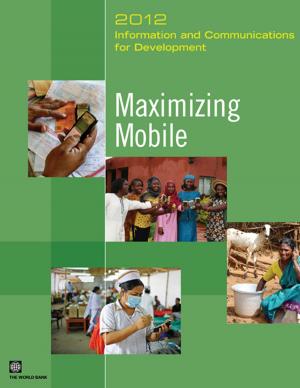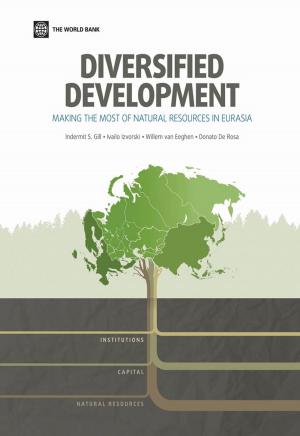Vietnam 2035
Toward Prosperity, Creativity, Equity, and Democracy
Business & Finance, Economics, Sustainable Development, Economic Development, Industries & Professions, Industries| Author: | World Bank Group;Ministry of Planning and Investment of Vietnam | ISBN: | 9781464808258 |
| Publisher: | World Bank Publications | Publication: | November 7, 2016 |
| Imprint: | World Bank Publications | Language: | English |
| Author: | World Bank Group;Ministry of Planning and Investment of Vietnam |
| ISBN: | 9781464808258 |
| Publisher: | World Bank Publications |
| Publication: | November 7, 2016 |
| Imprint: | World Bank Publications |
| Language: | English |
Thirty years of Ä?ổi Má»›i (economic renovation) reforms have catapulted Vietnam from the ranks of the world’s poorest countries to one of its great development success stories. Critical ingredients have been visionary leaders, a sense of shared societal purpose, and a focus on the future. Starting in the late 1980s, these elements were successfully fused with the embrace of markets and the global economy. Economic growth since then has been rapid, stable, and inclusive, translating into strong welfare gains for the vast majority of the population. But three decades of success from reforms raises expectations for the future, as aptly captured in the Vietnamese constitution, which sets the goal of “a prosperous people and a strong, democratic, equitable, and civilized country.†? There is a firm aspiration that by 2035, Vietnam will be a modern and industrialized nation moving toward becoming a prosperous, creative, equitable, and democratic society. The Vietnam 2035 report, a joint undertaking of the Government of Vietnam and the World Bank Group, seeks to better comprehend the challenges and opportunities that lie ahead. It shows that the country’s aspirations and the supporting policy and institutional agenda stand on three pillars: balancing economic prosperity with environmental sustainability; promoting equity and social inclusion to develop a harmonious middle- class society; and enhancing the capacity and accountability of the state to establish a rule of law state and a democratic society. Vietnam 2035 further argues that the rapid growth needed to achieve the bold aspirations will be sustained only if it stands on faster productivity growth and reflects the costs of environmental degradation. Productivity growth, in turn, will benefit from measures to enhance the competitiveness of domestic enterprises, scale up the benefits of urban agglomeration, and build national technological and innovative capacity. Maintaining the record on equity and social inclusion will require lifting marginalized groups and delivering services to an aging and urbanizing middle-class society. And to fulfill the country’s aspirations, the institutions of governance will need to become modern, transparent, and fully rooted in the rule of law.
Thirty years of Ä?ổi Má»›i (economic renovation) reforms have catapulted Vietnam from the ranks of the world’s poorest countries to one of its great development success stories. Critical ingredients have been visionary leaders, a sense of shared societal purpose, and a focus on the future. Starting in the late 1980s, these elements were successfully fused with the embrace of markets and the global economy. Economic growth since then has been rapid, stable, and inclusive, translating into strong welfare gains for the vast majority of the population. But three decades of success from reforms raises expectations for the future, as aptly captured in the Vietnamese constitution, which sets the goal of “a prosperous people and a strong, democratic, equitable, and civilized country.†? There is a firm aspiration that by 2035, Vietnam will be a modern and industrialized nation moving toward becoming a prosperous, creative, equitable, and democratic society. The Vietnam 2035 report, a joint undertaking of the Government of Vietnam and the World Bank Group, seeks to better comprehend the challenges and opportunities that lie ahead. It shows that the country’s aspirations and the supporting policy and institutional agenda stand on three pillars: balancing economic prosperity with environmental sustainability; promoting equity and social inclusion to develop a harmonious middle- class society; and enhancing the capacity and accountability of the state to establish a rule of law state and a democratic society. Vietnam 2035 further argues that the rapid growth needed to achieve the bold aspirations will be sustained only if it stands on faster productivity growth and reflects the costs of environmental degradation. Productivity growth, in turn, will benefit from measures to enhance the competitiveness of domestic enterprises, scale up the benefits of urban agglomeration, and build national technological and innovative capacity. Maintaining the record on equity and social inclusion will require lifting marginalized groups and delivering services to an aging and urbanizing middle-class society. And to fulfill the country’s aspirations, the institutions of governance will need to become modern, transparent, and fully rooted in the rule of law.















